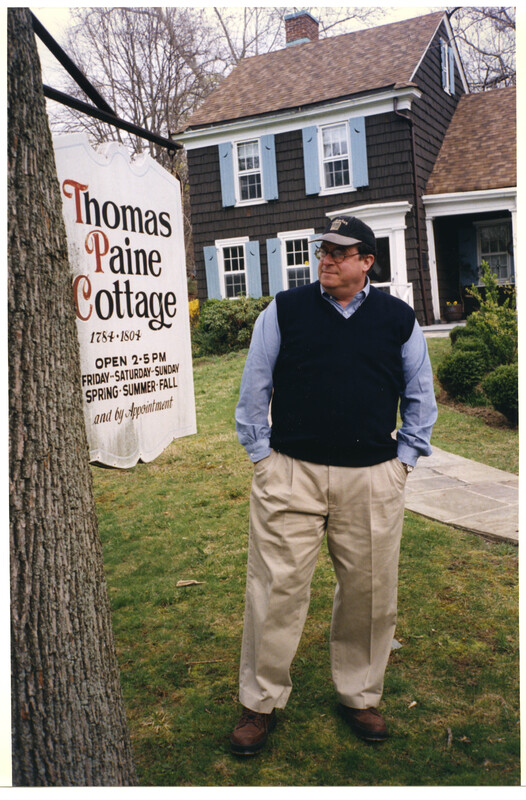Booknotes & Journalists
A journalist himself, Brian Lamb welcomed fellow journalists into his studio to talk about their books and what went into writing them. Whether an author’s journalism career put them behind a typewriter, in front of a camera, or in the control room, he or she was a welcome guest on Booknotes.
The show featured such well-known figures as Morley Safer, Neil Sheehan, Peter Jennings, Dan Rather, Katherine Graham, Carl Rowan, James Reston, and Don Hewitt, just to name a few.
Leon Dash
Leon Dash, professor of journalism at the University of Illinois at Urbana-Champaign, is shown here in front of a McDonald’s in Washington, D.C. This restaurant was an integral part of his book, Rosa Lee: A Mother and Her Family in Urban America.
He frequently met Rosa Lee Cunningham there to interview her for The Washington Post. The eight-part article-series, which ran in the Post in 1994, won the Pulitzer Prize for investigative journalism. He discussed the story and subsequent book on Booknotes in November 1996.
Katherine Graham
Katherine Graham, President, CEO, and Publisher of The Washington Post newspaper from 1963 into the 1990s, is shown here in her home office in Washington, D.C.
As part of the "Booknotes" interview, Lamb often asked authors to detail their writing process, including where they wrote. During her interview in February 1997, in which she discussed her Pulitzer Prize-winning memoir, Personal History, Graham told Lamb she compiled the book while in this office.
Jon Katz
During an oral history interview on October 23, 2014, Jon Katz, author of Virtuous Reality: How America Surrendered Discussion of Moral Values to Opportunists, Nitwits and Blockheads Like William Bennett, discussed his March 1997 "Booknotes" interview with Brian Lamb. He recalled being surprised by Lamb’s impartial interview style. Katz, who was previously a reporter for The Philadelphia Inquirer, The Boston Globe and The Washington Post, considered it a refreshing change for that period of time. He suggested that media outlets descended into a “culture of argument” where organizations were beginning to form rival camps of opinion.
Virtuous Reality: How America Surrendered Discussion of Moral Values to Opportunists, Nitwits, and Blockheads like William Bennett


